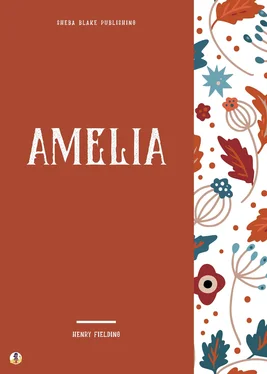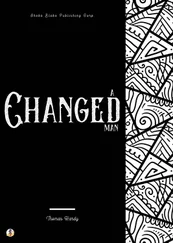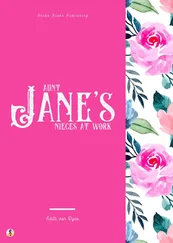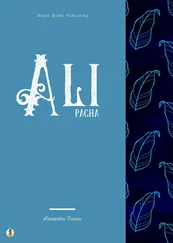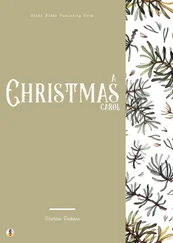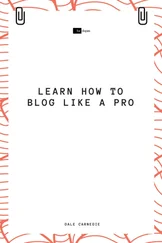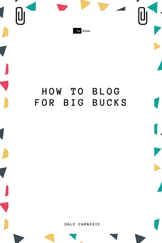Sheba Blake - Amelia
Здесь есть возможность читать онлайн «Sheba Blake - Amelia» — ознакомительный отрывок электронной книги совершенно бесплатно, а после прочтения отрывка купить полную версию. В некоторых случаях можно слушать аудио, скачать через торрент в формате fb2 и присутствует краткое содержание. Жанр: unrecognised, на английском языке. Описание произведения, (предисловие) а так же отзывы посетителей доступны на портале библиотеки ЛибКат.
- Название:Amelia
- Автор:
- Жанр:
- Год:неизвестен
- ISBN:нет данных
- Рейтинг книги:4 / 5. Голосов: 1
-
Избранное:Добавить в избранное
- Отзывы:
-
Ваша оценка:
- 80
- 1
- 2
- 3
- 4
- 5
Amelia: краткое содержание, описание и аннотация
Предлагаем к чтению аннотацию, описание, краткое содержание или предисловие (зависит от того, что написал сам автор книги «Amelia»). Если вы не нашли необходимую информацию о книге — напишите в комментариях, мы постараемся отыскать её.
Amelia — читать онлайн ознакомительный отрывок
Ниже представлен текст книги, разбитый по страницам. Система сохранения места последней прочитанной страницы, позволяет с удобством читать онлайн бесплатно книгу «Amelia», без необходимости каждый раз заново искать на чём Вы остановились. Поставьте закладку, и сможете в любой момент перейти на страницу, на которой закончили чтение.
Интервал:
Закладка:
Henry Fielding
Amelia
First published by Sheba Blake Publishing Corp. 2021
Copyright © 2021 by Henry Fielding
All rights reserved. No part of this publication may be reproduced, stored or transmitted in any form or by any means, electronic, mechanical, photocopying, recording, scanning, or otherwise without written permission from the publisher. It is illegal to copy this book, post it to a website, or distribute it by any other means without permission.
This novel is entirely a work of fiction. The names, characters and incidents portrayed in it are the work of the author's imagination. Any resemblance to actual persons, living or dead, events or localities is entirely coincidental.
Henry Fielding asserts the moral right to be identified as the author of this work.
Sheba Blake Publishing Corp.
2288 Crossrail Dr
Atlanta, GA 30349
support@shebablake.com
First edition
Cover art by Sheba Blake
Editing by Sheba Blake
This book was professionally typeset on Reedsy
Find out more at reedsy.com

Introduction
Fielding’s third great novel has been the subject of much more discordant judgments than either of its forerunners. If we take the period since its appearance as covering four generations, we find the greatest authority in the earliest, Johnson, speaking of it with something more nearly approaching to enthusiasm than he allowed himself in reference to any other work of an author, to whom he was on the whole so unjust. The greatest man of letters of the next generation, Scott (whose attitude to Fielding was rather undecided, and seems to speak a mixture of intellectual admiration and moral dislike, or at least failure in sympathy), pronounces it “on the whole unpleasing,” and regards it chiefly as a sequel to Tom Jones , showing what is to be expected of a libertine and thoughtless husband. But he too is enthusiastic over the heroine. Thackeray (whom in this special connection at any rate it is scarcely too much to call the greatest man of the third generation) overflows with predilection for it, but chiefly, as it would seem, because of his affection for Amelia herself, in which he practically agrees with Scott and Johnson. It would be invidious, and is noways needful, to single out any critic of our own time to place beside these great men. But it cannot be denied that the book, now as always, has incurred a considerable amount of hinted fault and hesitated dislike. Even Mr. Dobson notes some things in it as “unsatisfactory;” Mr. Gosse, with evident consciousness of temerity, ventures to ask whether it is not “a little dull.” The very absence of episodes (on the ground that Miss Matthews’s story is too closely connected with the main action to be fairly called an episode) and of introductory dissertations has been brought against it, as the presence of these things was brought against its forerunners.
I have sometimes wondered whether Amelia pays the penalty of an audacity which, a priori , its most unfavourable critics would indignantly deny to be a fault. It begins instead of ending with the marriage-bells; and though critic after critic of novels has exhausted his indignation and his satire over the folly of insisting on these as a finale, I doubt whether the demand is not too deeply rooted in the English, nay, in the human mind, to be safely neglected. The essence of all romance is a quest; the quest most perennially and universally interesting to man is the quest of a wife or a mistress; and the chapters dealing with what comes later have an inevitable flavour of tameness, and of the day after the feast. It is not common now-a-days to meet anybody who thinks Tommy Moore a great poet; one has to encounter either a suspicion of Philistinism or a suspicion of paradox if one tries to vindicate for him even his due place in the poetical hierarchy. Yet I suspect that no poet ever put into words a more universal criticism of life than he did when he wrote “I saw from the beach,” with its moral of—
“Give me back, give me back, the wild freshness of morning—Her smiles and her tears are worth evening’s best light.”
If we discard this fallacy boldly, and ask ourselves whether Amelia is or is not as good as Joseph Andrews or Tom Jones , we shall I think be inclined to answer rather in the affirmative than in the negative. It is perhaps a little more easy to find fault with its characters than with theirs; or rather, though no one of these characters has the defects of Blifil or of Allworthy, it is easy to say that no one of them has the charm of the best personages of the earlier books. The idolaters of Amelia would of course exclaim at this sentence as it regards that amiable lady; and I am myself by no means disposed to rank amiability low in the scale of things excellent in woman. But though she is by no means what her namesake and spiritual grand-daughter. Miss Sedley, must, I fear, be pronounced to be, an amiable fool, there is really too much of the milk of human kindness, unrefreshed and unrelieved of its mawkishness by the rum or whisky of human frailty, in her. One could have better pardoned her forgiveness of her husband if she had in the first place been a little more conscious of what there was to forgive; and in the second, a little more romantic in her attachment to him. As it is, he was son homme ; he was handsome; he had broad shoulders; he had a sweet temper; he was the father of her children, and that was enough. At least we are allowed to see in Mr. Booth no qualities other than these, and in her no imagination even of any other qualities. To put what I mean out of reach of cavil, compare Imogen and Amelia, and the difference will be felt.
But Fielding was a prose writer, writing in London in the eighteenth century, while Shakespeare was a poet writing in all time and all space, so that the comparison is luminous in more ways than one. I do not think that in the special scheme which the novelist set himself here he can be accused of any failure. The life is as vivid as ever; the minor sketches may be even called a little more vivid. Dr Harrison is not perfect. I do not mean that he has ethical faults, for that is a merit, not a defect; but he is not quite perfect in art. His alternate persecution and patronage of Booth, though useful to the story, repeat the earlier fault of Allworthy, and are something of a blot. But he is individually much more natural than Allworthy, and indeed is something like what Dr Johnson would have been if he had been rather better bred, less crotchety, and blessed with more health. Miss Matthews in her earlier scenes has touches of greatness which a thousand French novelists lavishing “candour” and reckless of exaggeration have not equalled; and I believe that Fielding kept her at a distance during the later scenes of the story, because he could not trust himself not to make her more interesting than Amelia. Of the peers, more wicked and less wicked, there is indeed not much good to be said. The peer of the eighteenth-century writers (even when, as in Fielding’s case, there was no reason why they should “mention him with Kor ,” as Policeman X. has it) is almost always a faint type of goodness or wickedness dressed out with stars and ribbons and coaches- and-six. Only Swift, by combination of experience and genius, has given us live lords in Lord Sparkish and Lord Smart. But Mrs. Ellison and Mrs. Atkinson are very women, and the serjeant, though the touch of “sensibility” is on him, is excellent; and Dr Harrison’s country friend and his prig of a son are capital; and Bondum, and “the author,” and Robinson, and all the minor characters, are as good as they can be.
Читать дальшеИнтервал:
Закладка:
Похожие книги на «Amelia»
Представляем Вашему вниманию похожие книги на «Amelia» списком для выбора. Мы отобрали схожую по названию и смыслу литературу в надежде предоставить читателям больше вариантов отыскать новые, интересные, ещё непрочитанные произведения.
Обсуждение, отзывы о книге «Amelia» и просто собственные мнения читателей. Оставьте ваши комментарии, напишите, что Вы думаете о произведении, его смысле или главных героях. Укажите что конкретно понравилось, а что нет, и почему Вы так считаете.
